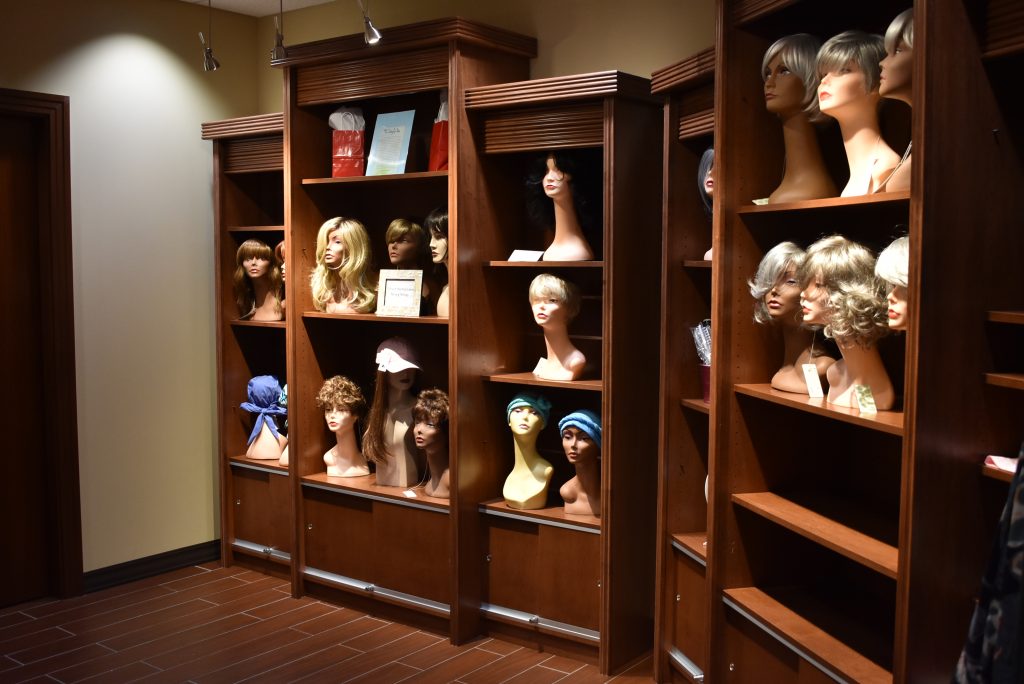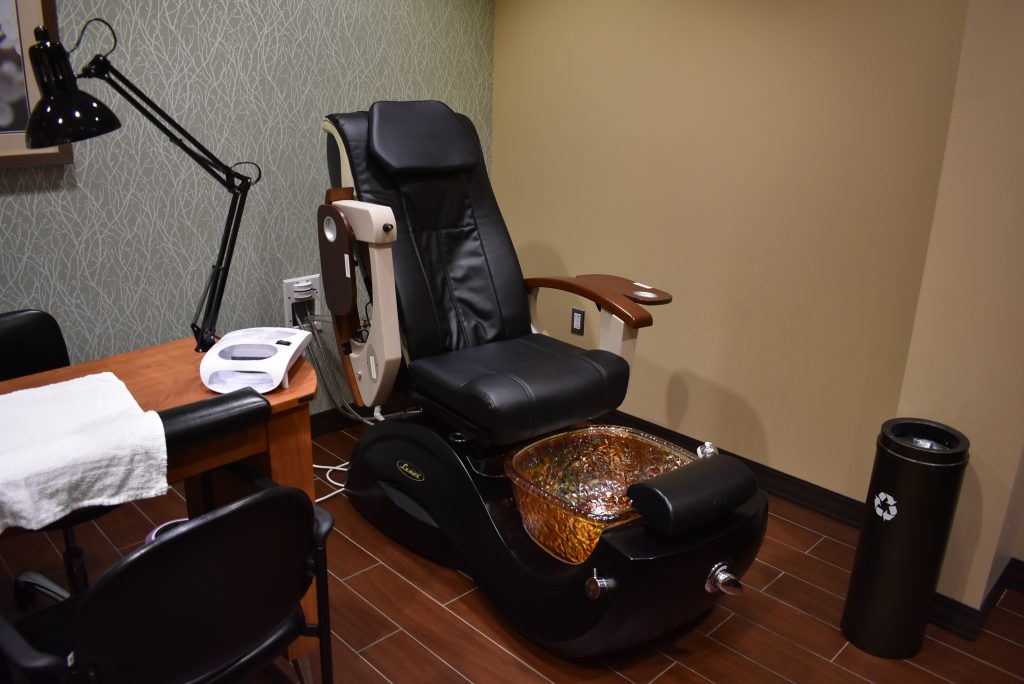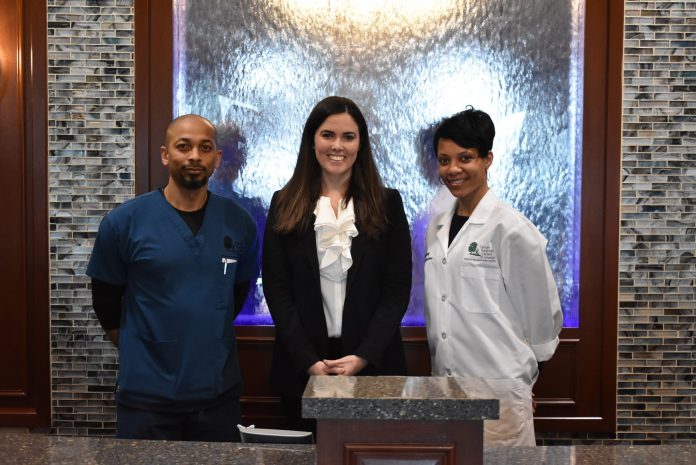Entering Cancer Treatment Centers of America in Philadelphia, visitors step into a lobby more resembling of a home, decorated with artwork, chandeliers and sometimes even the tinkling of a piano. Tucked away in the lobby is another location one wouldn’t expect to find in a cancer treatment center – a center where patients and caregivers can go to relax, similar to a salon or spa.
CTCA’s Image Recovery Center is like an oasis or a home away from home for its visitors. There, visitors can get treatments such as massages, manicures and pedicures, hair loss and scalp treatment and wig and makeup consultation. The services are specialized depending on the patient to make sure it’s safe and restorative.
Other places could provide treatments that are dangerous to cancer patients, such as cuticle trimmings resulting in full-blown infections, or receiving nail polish that could prevent the doctor from noticing a symptom or side effect.
“We have caregivers coming in who are learning how to better support their loved ones, so learning different techniques on how to provide a safe massage or how to provide a relaxing head massage and scalp care,” said Kathryn Cantera, director of Integrative and Culinary Service at CTCA.
The patients are in the caring hands of Danielle Johnson, the Center’s certified trichologist, and Orlando Moreno, oncology massage therapist. A trichologist studies the health of hair and the scalp – a skillset Johnson once utilized to do hair and makeup on celebrities like Patti LaBelle, and one she felt she could use for a higher purpose.

“The stylists and technicians at this place have to want to be here, and I’m at the place in my life and career where I have done it all, and I want to be here,” she said.
An entrepreneur and beauty consultant since she was 13, Johnson recalled working with a customer who owned 300 wigs after suffering from hair loss. Her hair grew back after about half a year of rehabilitation. Johnson was inspired to help out more customers this way.
“Coming here was my dream job,” she said.
She and Moreno begin each day preparing for their customers by familiarizing themselves with their health conditions so they can cater each treatment personally. Moreno, who has been at the treatment center for 10 years, begins each session by asking how they are doing that day.
“Today is where we are, they’re here today in front of me,” he said. “I know what their schedule is, I know their diagnosis, so I know why they’re here. But how are you now, today?”
The center is equipped with an area to try on and buy wigs, which Johnson will stylize as if it is real hair. There’s also a salon and private rooms for massages. It’s open to patients whether they’re staying at the center or not, as well as their caregivers.
Along with providing safe and quality services, Johnson and Moreno strive to build trust and comfort with their customers.

“Listening is harder than speaking,” Johnson said. “I never ask their diagnosis, I never ask anything. I let them open up if they want to. I never want to invade their personal space. They deal with a lot before they got here, they have been bullied before they even got here, and that’s something that’s been really challenging for me. I get emotional.”
She said patients getting treated different is something she hears a lot from her customers.
“People see the bald head or the scar or the mask and they don’t treat them normally,” she said. “When they get here and they say hi on a first-name basis, they say I’m just happy to be home. Because they got to fight outside these walls.” ••





